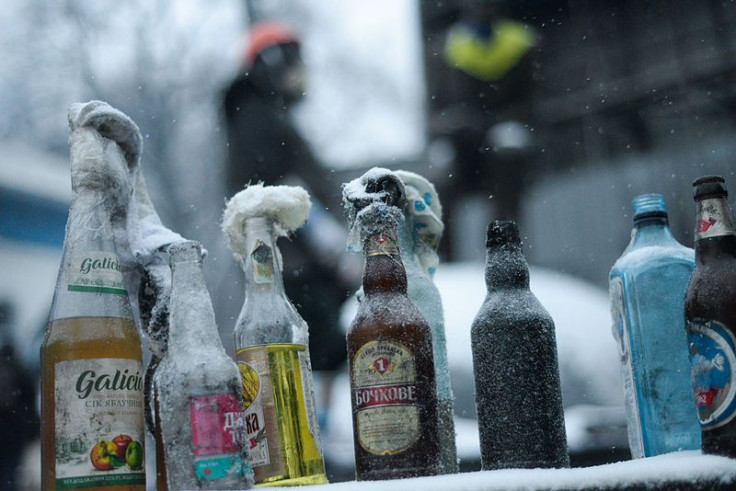Russian Hackers Threw Molotov Cocktails At Cybersecurity Firm That Exposed ATM Malware

You thought the hackers who shredded Sony over “The Interview” were crazy? A team of Russian ATM hackers now stand accused of repeatedly throwing Molotov cocktails at the Russian cybersecurity company that exposed their operation.
Dr. Web, a Russian anti-virus company, says hackers threw explosives at the company’s St. Petersburg office at least twice after Dr. Web released research pulling the veil off malicious software the group was installing on cash machines. Russia and Eastern Europe is a hot spot for various strains of malware that are physically installed on ATMs throughout the world, capturing details on unsuspecting customers’ payment information. But it’s almost unheard-of for cybercriminals, in this case calling themselves the Syndicate, to create havoc in the physical world, even against companies that expose their methods.
“Hundreds of criminal organizations throughout the world can lose their earnings,” the group wrote in December 2013 as part of the first of multiple threats against Dr. Web, according to a reproduction of the letter available on the company’s website Wednesday. “You have a WEEK to delete all references about ATM.Skimmer from your web resource. Otherwise Syndicate will stop cash-out transactions and send criminal for your programmers’ heads. The end of Doctor Web will be tragic.”
The office was attacked in March 2014, then again shortly after, Dr. Web CEO Boris Sharov told KrebsOnSecurity. Sharov explained that fire trucks trying to douse the flames did more damage than the actual Molotov cocktails, though employees were nonetheless bothered by the attacks. Those attacks were followed by multiple failed intrusions at Dr. Web’s offices in Moscow, infiltrations the company believes were requested online.
“We are completely sure it was ordered [over the] Internet, through a black market where you can order almost any crime,” Sharov told Krebs. “What we saw was some people from St. Petersburg throwing Molotov cocktails, running away from the guards. But those people were not from the IT criminal environment ... And since they never succeeded against our office, it showed us that not much money was paid for these attacks.”
© Copyright IBTimes 2024. All rights reserved.











